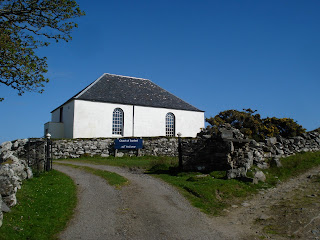What leaders really do?
Once
upon a time, when I thought I wanted to work in HR, I read a much reprinted article
by John P Kotter, called “What leaders really do” (Havard Business Review,
May-June 1990). In plain English Kotter described a step by step approach to
helping people deliver the organisation’s vision e.g. involving people in
decision-making, being a good role model, providing coaching and feedback, and
praising people when they were successful. At the time Kotter made complete
sense to me, and I was grateful to him for making leadership seem so simple.
Years later...
Twenty years later, when
I read the article again, I was nearly sick. This is a
good thing, because it shows how much my ideas about leadership have changed
since I began working in leadership and sustainability. How could I have
imagined that this mechanical approach to managing people was the real deal?
In Praise of the Incomplete Leader
Somewhere
between my first and second readings of Kotter, I came across an article
co-authored by Peter Senge, called ‘In Praise of the Incomplete Leader’. It
began with the words ‘No leader is perfect’. I became very excited. ‘The
Incomplete Leader’ describes four leadership competencies and why they matter:
making sense of the world, relating to people, communicating your vision, and
inventing ways to make it happen.
Leadership beyond organisations
What I instantly liked was the framing of leadership as way of thinking and acting, a process of being and becoming.
‘Incomplete Leadership’ is not tied to an organisational setting. It can work
in teams, partnerships, networks and communities. With its strong emphasis on
creating shared narratives, ‘Incomplete Leadership’ is a joint quest for the
best possible way forward. It’s OK not to have all the answers, provided we
keep asking questions, and telling stories to raise our spirits.
What real leaders really do
Since
I discovered the ‘Incomplete Leader’, I’ve thought a lot about what we can do
to provide real leadership in a complex and uncertain world. The list that
follows is incomplete, but that’s OK!
Real leaders:
- Are motivated by
serving other people, their community, their organisation, their favourite
cause
- Are curious about
the future
- Scan the horizon for opportunities, innovations, and threats
- Question their assumptions and
beliefs
- Listen and observe
constantly
- Are comfortable with complexity
- Gather information
from multiple sources. They talk to everyone they meet. They subscribe
newspapers and magazines, have a twitter account, and read blogs
- Invest time in
building diverse personal and professional networks because they know the
value of diversity
- Explore many as many
options as possible before making up their minds
- Suspend judgment on
hearing about a new way of doing things
- They like to
experiment because it is fun. They have courage, and they are willing to
take risks
- Take time out to
think and reflect, perhaps go for walk or swim. They may keep a diary, a
journal, or a write a blog
- Encourage different
points of view and involve people in decision-making
- Are open and honest
about making mistakes. They treat mistakes as an opportunity to learn and
share what they discovered with others
- Take responsibility
for their actions
- Want to learn and
they want other people to learn, too. They give and receive feedback
freely
- Enjoy what they
do. Real leaders make a positive difference to the lives of other people.
People like to work with them because they are life enhancers
- ?
London, 18 August 2013
Thanks for reading my blog. If you liked this page, you might like to check out my business website which has more content on leadership and learning.
www.kellowlearning.com
Thanks for reading my blog. If you liked this page, you might like to check out my business website which has more content on leadership and learning.
www.kellowlearning.com
